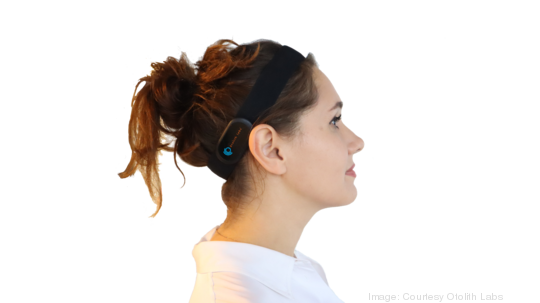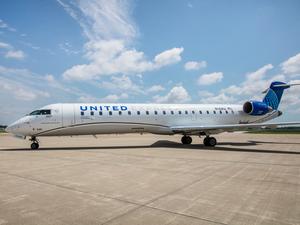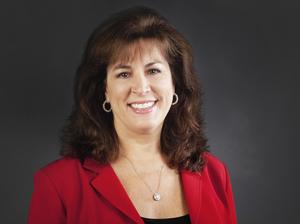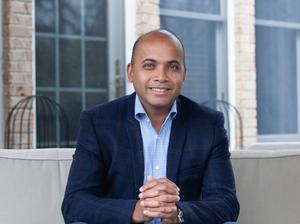
A D.C. company developing a wearable device for treating chronic vertigo sufferers has raised $20 million in fresh funding and plans to use the proceeds to continue clinical trials and bring its product to market.
Otolith Labs, whose backers include Dallas Mavericks’ owner and entrepreneur Mark Cuban, announced Wednesday it has a completed a Series A funding round with Morningside Ventures, a Boston firm that has investments in a wide range of biotech and life sciences companies developing treatments for physical and neurological disorders.
Otolith has developed a headband that uses its proprietary technology to stimulate the brain’s vestibular system and alleviate symptoms of vertigo, an extreme dizziness associated with multiple causes that afflicts more than 4 million Americans. The product has already been designated as a breakthrough device by the Food and Drug Administration — meaning it’s eligible for an expedited review process because it addresses an unmet medical need — and the investment from Morningside could further accelerate its development as it awaits full FDA approval.
Cuban, who has had bouts with vertigo in the past, was an early investor, along with some prominent ear, nose and throat physicians. In a statement, Otolith founder and CEO Sam Owen said the investment from Morningside and continued support from existing investors “underscores the momentum for the first wearable solution for a debilitating problem that adversely affects millions of Americans.”
The headband has the potential to treat motion sickness and help alleviate symptoms associated with multiple balance disorders, but Otolith is first advancing it specifically to treat vertigo. In pilot studies, which enrolled about 100 participants, patients treated with Otolith’s therapy were three times more likely to report improved symptoms than those in the placebo group, Otolith said.
The company will be showcasing the product in Philadelphia next week at the 2022 annual meeting of the American Academy of Otolaryngology-Head and Neck Surgery.
Owen founded Otolith — named for the small structures in the inner ear that help perceive movement and gravity — based on research he was conducting while earning his doctorate in physics at Georgetown University. He invested $65,000 of his own money during the company's first two years of existence and later was a participant in D.C.’s Halcyon Incubator program.
If approved by the FDA, the headband would require a doctor's prescription.




